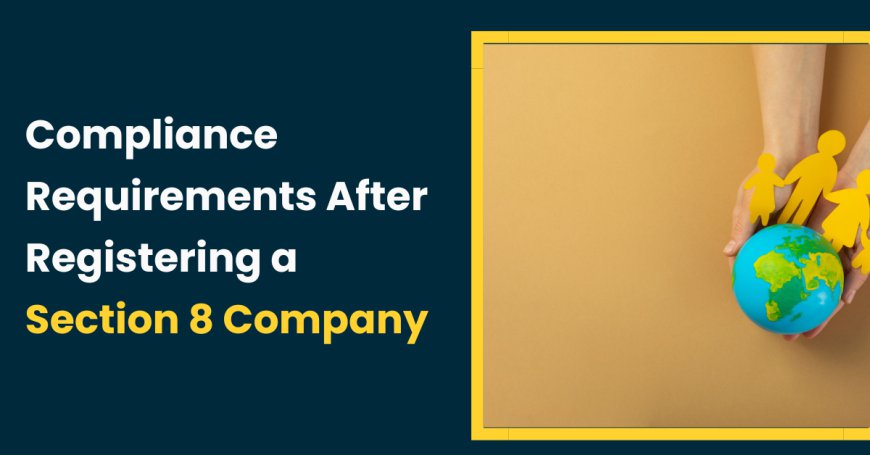Compliance Requirements After Registering a Section 8 Company

Registering a Section 8 Company is a great way to contribute to social welfare while enjoying certain tax exemptions. However, establishing the company is just the first step. Post-registration, the company must adhere to strict compliance requirements to operate smoothly and maintain its legal standing. Let’s explore the critical compliance obligations and how they differ from One Person Company Registration compliance.
Understanding Section 8 Company Compliance
Section 8 Companies are non-profit organizations recognized under the Companies Act, 2013. These companies work towards charitable objectives, such as promoting arts, education, or environmental conservation. Unlike other company structures, the compliance requirements for Section 8 Companies are more stringent to ensure accountability.
Key Compliance Requirements for Section 8 Companies
1. Obtaining Licenses and Approvals
Upon incorporation, a Section 8 Company must obtain the necessary licenses and approvals, including:
-
Registration under Section 12A and Section 80G of the Income Tax Act for tax exemptions.
-
GST registration, if applicable, based on the company's turnover.
2. Filing Annual Returns
Section 8 Companies must file their annual returns with the Registrar of Companies (RoC) using:
-
Form AOC-4: For filing the company’s financial statements.
-
Form MGT-7: For filing the annual return, detailing the company’s activities.
3. Board Meetings and General Meetings
Section 8 Companies must conduct at least:
-
Four Board Meetings annually.
-
One Annual General Meeting (AGM), during which members review the company’s performance and financials.
4. Maintenance of Statutory Records
The company must maintain:
-
A register of members.
-
Minutes of board meetings and AGMs.
-
Books of accounts and financial statements.
5. Adhering to Tax Compliance
Tax compliance includes filing:
-
Income tax returns.
-
TDS returns (if applicable).
Non-compliance may lead to the loss of tax exemptions or penalties.
How Section 8 Company Compliance Differs from One Person Company Registration
While both Section 8 Companies and One Person Companies (OPC) are registered under the Companies Act, their compliance obligations differ significantly.
Key Differences in Compliance:
|
Compliance Aspect |
Section 8 Company |
One Person Company Registration |
|
Objective |
Non-profit purposes |
Profit-driven business activities |
|
Board Meetings |
Minimum of four annually |
At least two meetings per year |
|
Tax Exemptions |
Eligible under Section 12A and 80G |
Not eligible for non-profit tax exemptions |
|
Reporting Requirements |
Detailed reports on charitable activities |
Standard financial reporting |
Ensuring Compliance for Section 8 Companies
To ensure compliance, it is recommended to:
-
Regularly consult with legal and tax professionals.
-
Use software to track filing deadlines and maintain records.
-
Stay updated on amendments to the Companies Act and related regulations.
Conclusion
Compliance is the backbone of a well-functioning Section 8 Company Registration. By adhering to the required procedures, these organizations can continue to focus on their noble missions without legal hurdles. If you’re considering whether to register a Section 8 Company or explore other options like One Person Company Registration, understanding these compliance nuances is essential.
Must Read: Everything About NBFC Registration
